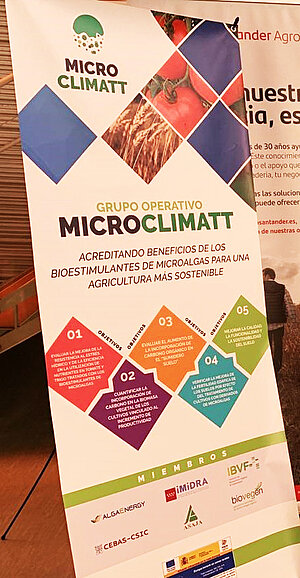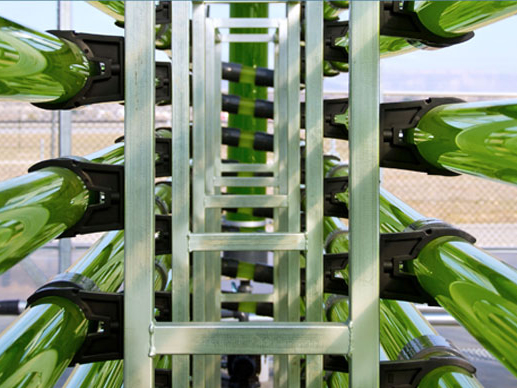The IBVF Microalgae Biotechnology Group participates as a member in the MICROCLIMATT Operative Group project, funded by the European Agricultural Fund for Rural Development (EAFRD) and the Ministry of Agriculture, Fisheries and Food. With a budget of 560,725 euros, the main objective of this proposal is to highlight the role of agricultural biostimulants produced from microalgae biomass in a context of climate change.
Highlighting the essential role of agricultural biostimulants, and specifically those produced from microalgae biomass, is the objective of the MicroClimatt Operative Group, which seeks to demonstrate the effectiveness of innovative biostimulant solutions derived from microalgae that can efficiently combat the effects of climate change on crops such as tomatoes or wheat. MicroClimatt will evaluate the effects on these crops at the physiological and transcriptomic level induced by treatment with novel microalgae biostimulants, including conditions that are directly or indirectly caused by climate change, such as water stress or poor fertilization rates.
The project is promoted and coordinated by AlgaEnergy, a leading international company in the microalgae biotechnology sector and its applications, and has top-level members such as the Institute of Plant Biochemistry and Photosynthesis (IBVF), the Madrid Institute for Rural, Agricultural and Food Research and Development (IMIDRA), the Segura Centre for Soil Science and Applied Biology (CEBAS-CSIC) and the Agrarian Association of Young Farmers (ASAJA). Likewise, BIOVEGEN – Technological Platform for Plant Biotechnology will be responsible for coordinating the valorization and dissemination activities.
In addition to assessing the improvement in resistance to water stress and nutrient use efficiency in tomato and wheat crops treated with microalgae biostimulants, the MicroClimatt Operating Group also aims to quantify the incorporation of carbon in the plant biomass of crops linked to increased productivity, assess the increase in the incorporation of organic carbon in the “soil sink” and study the improvement in soil fertility due to the effect of treating crops with microalgae derivatives, as well as the improvement in soil quality, functionality and sustainability.




